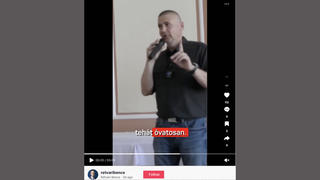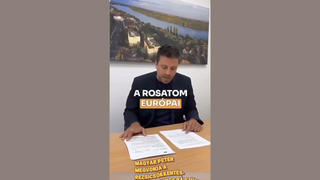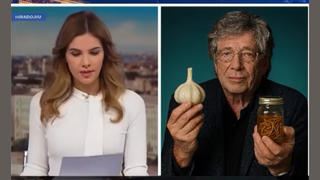
Does Bill Gates' sponsorship of a pandemic-simulation exercise in October 2019 prove he had advance knowledge of the COVID-19 outbreak later that year? No, that's not true: The simulation, known as Event 201, was a "tabletop exercise" modeled on a fictional virus whose attributes did not resemble those of COVID-19. Moreover, the medical-science community routinely holds such drills to help authorities prepare for future health emergencies.
The claim appeared in a Hungarian-language video (archived here) on TikTok on May 27, 2023. At the 7:40 mark, according to a Lead Stories translation, the narrator says:
Before the COVID outbreak... they simulated a pandemic under the name Event 201. They even stated [the virus's] name in the simulation: Corona. Flu-like symptoms. Severe pneumonia. Sound familiar?
Then, a month later, the laboratory-developed virus finally escaped. This simulation event was jointly organized by the Bill and Melinda Gates Foundation and the World Economic Forum. Bill Gates predicted the pandemic caused by corona for us.
This is what the post looked like on TikTok at the time of writing:

(Source: TikTok screenshot taken on Thu Aug 17 09:40:06 2023 UTC)
The 10-minute video also claims that global elites engineered the COVID-19 virus in a laboratory in Wuhan, China, and unleashed it on the world in order to make the panicked public submit to their control. This fact-check will focus on the claim related to Event 201 and Gates.
Event 201 took place in New York on October 18, 2019, sponsored by the Bill and Melinda Gates Foundation, the World Economic Forum, and the Johns Hopkins Center for Health Security. Attendees participated in a simulation of "an outbreak of a novel zoonotic coronavirus transmitted from bats to pigs to people that eventually becomes efficiently transmissible from person to person, leading to a severe pandemic," according to the event's webpage.
On January 24, 2020, Alex Jones' Infowars site claimed that Event 201 had predicted the outbreak of COVID-19 in December 2019 -- and that Gates personally stood to benefit from developing a vaccine for it. The same day, Johns Hopkins issued a statement explaining that the simulation's organizers
explicitly stated that it was not a prediction. Instead, the exercise served to highlight preparedness and response challenges that would likely arise in a very severe pandemic... Although our tabletop exercise included a mock novel coronavirus, the inputs we used for modeling the potential impact of that fictional virus are not similar to [COVID-19].
The fact that Event 201's organizers chose a coronavirus as the chief antagonist in their roleplay does not prove they had prior knowledge of COVID-19. Human coronaviruses are large a family of pathogens discovered in the 1960s, and COVID-19 is only one recent example, according to the National Foundation for Infectious Diseases, a U.S.-based nonprofit. Coronaviruses are responsible for some of the deadliest respiratory infections in recent decades: Severe Acute Respiratory Syndrome (SARS) killed an estimated 774 people in 2002-03, and the Middle East Respiratory Syndrome (MERS) has caused 858 known deaths since 2012, according to the World Health Organization.
Health-policy officials regularly run simulations similar to Event 201 so they will not be caught off guard in the event of future disease outbreaks. In 2007, British authorities assessed their preparedness for an influenza emergency in a simulation dubbed Exercise Winter Willow. In 2019, U.S. President Donald Trump's administration conducted a drill called Crimson Contagion, which also simulated an influenza pandemic.













